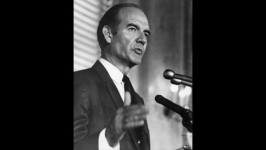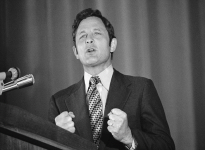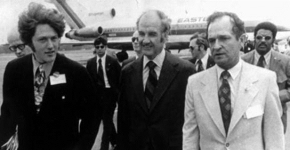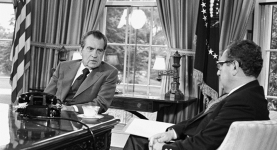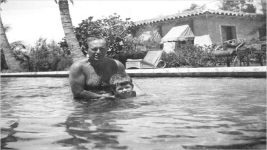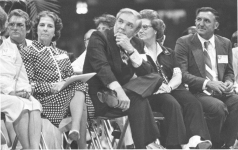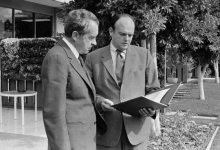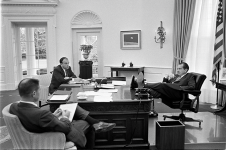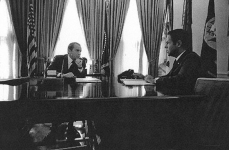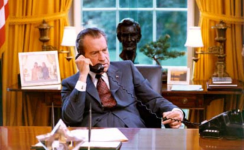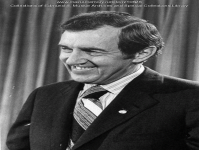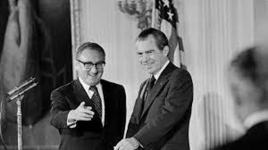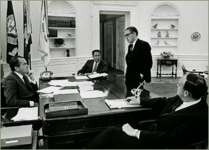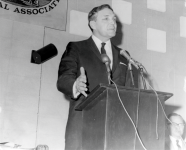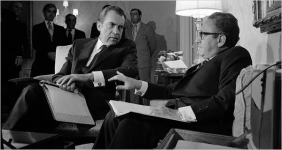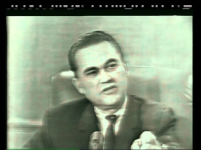Chapter 01: January 1971.
New
Nazi Space Spy
Member
This is a timeline I started on AH.com before I was unceremoniously banned for being banned before (an alliterative Agnew would be proud of!), that I will finish here. It is a spinoff of Drew's timeline, and all credit goes to him. This is his timeline; I am grateful to him for letting me do this.
The show had been, all in all, a pretty stand-out gig. The Grateful Dead had roared through a trance inducing version of "Morning Dew" that kicked in the LSD trips of scores of young concert-goers. Afterwards, they sailed effortlessly and seamlessly through a variety of acoustic, bluesy songs before once again roaring through "Mason's Children," "Me and my Uncle," and a particularly raucous “Hard to Handle" that left their indisposed audience in awe of the crashing choruses that sounded like chariots thundering out of Valhalla. A few old classics - "Long Black Limousine" and originals like "Black Peter" before closing out the show with the jug-band sounding "Cumberland Blues." Jerry smiled radiantly, his teeth shining among the sea of thick black facial hair. He was in his element - this was what brought the Dead alive. It had been a long day; they had been busted down on Bourbon Street and were now facing marijuana charges but were able to be bailed out of jail in time for their show at the Warehouse that night in downtown New Orleans.
After the show, the band retreated behind the stage as the audience milled about in an ever-present, lingering cloud of marijuana. Young women clad in tie-died dresses, their hair adorned with flowers, danced in circles while amateur musicians beat on drums. The acid trips began to plateau, and the crowds began to file out as New Year's Eve evolved into New Year’s morning. Behind stage, Jerry struck a match to light a cigarette as a local television camera grew circled in. A young female reporter, on assignment to cover the New Year's celebrations across San Francisco, pushed a microphone into his face. "What do you think the 1970s will hold for America?" she asked. "It will be a decade of peace, magic, myth, bliss, celebration, and spirituality" replied Garcia.
Little did he know that night how wrong he'd be. But at the dawn of 1971, the Counter-Culture, though nearly fatally wounded by the incident at Altamont and the zeitgeist of stagnation that pervaded through the preceding year of 1970, still limped forwards into an uncertain future. The events of the last decade seemed far away. There was an extremely close presidential election that bared the odious scent of scandal. Then there was the death of John Kennedy, cut down by an assassin’s bullet in the prime of his life. There was the ever-present threat of nuclear war, most recently illustrated by the Cuban Missile Crisis. In the south, the black population had made itself heard while on the campuses a new generation of activists found their voices. In Vietnam, the best and brightest of a generation died face down in the muck in a quagmire that seemed without end. And at home, the cities were on fire as rioters raised hell on the streets in the face of rising unemployment, economic stagnation, and the listless lack of direction that seemed to bedevil the nation.
In fact, by 1971, it seemed the last bit dreams of the 1960s had died three years earlier with Martin Luther King and Robert Kennedy. The unexciting candidacy of Hubert Humphrey and the venomous rhetoric of George Wallace ensured that Richard Nixon would finally achieve his dream of winning the President in 1968, the sad final chapter of the tragedy that was Camelot. For the eternally optimistic like Jerry Garcia, there was an innate cause to hope. But to many of his contemporaries, such as the fractured Beatles or the hibernating Bob Dylan, the onset of the 1970s had little to offer besides more division, violence, and blight.
Saturday, January 2nd, 1971: 66 people are killed and a further 200 injured in a stampede at Ibrox Park in Glasgow, Scotland, after the conclusion of a match between the Rangers and Celtic football clubs. It is one of the worst human crushes in recent memory in the United Kingdom.
Sunday, January 3rd, 1971: The 92nd Congress convenes in Washington; Carl Albert is elected Speaker, while Mike Mansfield remains Senate Majority Leader. Democrats continue to hold majorities in both chambers.
Monday, January 4th, 1971: Gallup releases it’s first polling ahead of the 1972 presidential election.
Gallup: 1,000 Registered Voters (Nationwide).
(R) Richard Nixon: 40%
(D) Generic Democrat: 34%
Undecided: 22%
Independent/Other: 4%
Gallup: 1,000 Democratic Voters (Nationwide).
Edward Kennedy: 41%
Edmund Muskie: 15%
George Wallace: 14%
Hubert Humphrey: 12%
George McGovern: 10%
Henry Jackson: 5%
Eugene McCarthy: 2%
Birch Bayh: 2%
Harold Hughes: 1%
Vance Hartke: 1%
Tuesday, January 5th, 1971: The Khmer Rouge goes on the offensive in Cambodia, seizing control of large swathes of the northwestern corner of the country. In response, the Lon Nol regime begins persecuting ethnic Vietnamese, claiming that North Vietnam is aiding the rebellion. This drives an increasingly large number of Vietnamese immigrants, particularly those working on the rural Palm Oil plantations, into the arms of the Khmer Rouge. While the radical, shadowy Maoist guerilla army’s leadership is predominately ethnically Khmer and distrusting of the communist regime in Hanoi, they none the less agree to cultivate more universal support within Cambodia as part of their efforts to seize power. This decision is reached over the begrudging objections of their enigmatic leader, Pol Pot, known to the cadres only as “Brother #1.”
Wednesday, January 6th, 1971: The Washington Post outlines the prospective presidential field ahead of the 1972 election; highlighted as the frontrunners for the Democratic nomination are Senators Muskie, Humphrey, and Jackson, while McGovern and outsiders like Governors Wallace and rather curiously, Iowa Senator Harold Hughes, are touted as dark horse contenders for the nomination. But it is clear through polling that the Democratic nomination belongs to Senator Kennedy, should he so choose to run. Despite the tarnishing scandal of Chappaquiddick, many Democrats look to the Senate’s “liberal lion” as the leading contender for the nomination.
Thursday, January 7th, 1971: Ahead of the upcoming elections in Honduras, President Oswaldo Lopez – who for seven years has ruled the country like a banana republic as a military dictator – announces that only the Liberal and National parties will be allowed to run a slate of candidates, effectively neutering the opposition’s ability to form a government as he prepares to transition out of office.
Friday, January 8th, 1971: The SS Antilles, a French owned cruise ship, sinks off Mustique. There are no fatalities, though the ship is ultimately scuttled on some reefs and is severely damaged by fire after the successful evacuation of the crew and passengers. It is later dragged further out to sea and sunk after an investigation by British maritime officials.
Saturday, January 9th, 1971: American Airlines Flight 30 collides midair with a Cessna over Newark, New Jersey. The damaged airliner managed to make an emergency landing with no injuries, though the two men onboard the Cessna are killed in the crash.
Sunday, January 10th, 1971: 200 South Vietnamese paratroopers overrun a small Viet Cong encampment in Cambodia near the village of Mimot; 20 American POWs are rescued and borne away to safety by the South Vietnamese forces while American helicopter gunships circle above. Secretary of Defense Melvin Laird hails the mission as a “pyrrhic success” and praises “the fierce determination of our allies” in the aftermath of the raid.
Monday, January 11th, 1971: Geoffrey Jackson, British Ambassador to Uruguay, is killed in a failed kidnapping by Marxist guerillas in the capital city of Montevideo. In response to the ambush and assassination of Jackson, Uruguayan President Jorge Areca declares a state of emergency and sends the army into the slums to root out suspected urban guerilla cells.
Tuesday, January 12th, 1971: All in the Family premiers in the 9:30 PM timeslot on CBS; the show will become the network’s biggest sitcom success of the decade, starring Carroll O’Connor, Jean Stapleton, Sally Struthers, and Rob Reiner. Despite initial poor reviews from most critics, the show quickly becomes a big hit with American audiences.
Wednesday, January 13th, 1971: Colonel Buzz Aldrin announces his retirement from the NASA program and will return to active duty in the Air Force after his legendary career as an astronaut. Despite the fame of being the first man to step upon the moon, Aldrin continues to insist that he will not seek other careers opportunities in Hollywood, corporate America, or politics despite a plethora of job offers.
Thursday, January 14th, 1971: The Haitian Chamber of Deputies votes unanimously (in the presence of armed, lingering Tonton Macoutes) to pass a constitutional amendment which allows President Francois Duvalier (“Papa Doc”) to appoint his 19-year-old son Jean-Claude as Vice President and heir.
Friday, January 15th, 1971: The Aswan High Dam in Egypt is opened after years of construction; the opening ceremony, attended by Egyptian President Anwar Sadat and Soviet head of state Nikolai Podgorny, showcases the dam as a billion dollar masterpiece of modern engineering.
Saturday, January 16th, 1971: Complying with the demands of urban guerillas who had kidnapped the Swiss Ambassador to Brazil six months earlier, the Brazilian military regime releases seventy political prisoners into Chilean exile in exchange for the Ambassador’s safe release.
Sunday, January 17th, 1971: The Baltimore Colts defeat the Dallas Cowboys 16-13 in Super Bowl V in Miami, which was won after the Colt’s scored a field goal with five seconds left in the game.
Senator George McGovern knew how he was going to win the game, because he was the one who wrote the rules.
The Senator from South Dakota, one of the leading progressive voices in American politics, had after all been the chair of the famed “McGovern-Fraser” Committee which had reformed the presidential nomination process after the chaotic convention in Chicago in 1968. Gone were the days of party bosses and crooked political machines – McGovern had ushered in the era of the primary election as the ultimate means on electing convention delegates, promising that the “politics of sunshine” would illuminate the party and shine a light on the shady practices that had kept the powerful elites entrenched. But the Senator was not content to just democratize his own party and was entertaining far greater ambitions throughout the duration of Nixon’s first term.
As he stepped into the studio, his televised speech to be delivered within a matter of minutes, McGovern felt an overwhelming spirit of optimism. This was largely due to the fervent support of the youth, who rallied around McGovern as the most reliable messenger for their generation. Disillusioned by the horrors of the Vietnam and discontent with the lack of social and racial justice at home, the “long hairs” flocked to the Senator’s banner. In spite of his relatively low polling (he was only placing fifth according to Gallup), the Senator believed that his moment had arrived, and that even the full force of the Kennedy juggernaut could not stop him.
He stepped to the podium; there was polite, tepid, and quiet applause from the audience that had gathered to watch his historic announcement, though the real audience was at home, watching on television screens in their living rooms or at their local bar. Though the address he was due to deliver would only be broadcast throughout South Dakota on local television, the text of his speech was due to be printed as an op-ed in numerous major newspapers across the country. McGovern was initially hesitant to launch his campaign so early, but it was the convincing arguments of his campaign manager, a young lawyer by the name of Gary Hart, which compelled him to jump into the fray so early. As the studio fell silent, a single camera man motioned with his hands that the Senator was at last live. The Senator, with his wife and family joining Hart behind the cameras, watched on in pride as the South Dakota Senator began his prepared remarks.
Today I announce my candidacy for the presidency of the United States. My wife, Eleanor and I have come home to South Dakota to make this announcement because here we shaped our basic political faith; here we were given the opportunity of public service. We are grateful to you for that opportunity and for your faith. We shall conduct this new effort to the honor of South Dakota, the nation, and ourselves.
You, my fellow South Dakotans, have not always agreed with my position on public issues. That was especially true in the early 1960’s when I stood almost alone in opposition to the sending of American troops to Southeast Asia. Despite these differences, you have rewarded my willingness to state my convictions freely and honestly. I anticipate the same fair hearing from citizens across the land. Thoughtful Americans understand that the highest patriotism is not a blind acceptance of official policy, but a love of one’s country deep enough to call her to a higher standard.
I seek the presidency because I believe deeply in the American promise and can no longer accept the diminishing of that promise. Our country began with a declaration of man’s rights to “life, liberty and the pursuit of happiness.“ These liberating ideals gave such meaning and purpose to the new American nation that our forebears proclaimed, “We mutually pledge to each other our lives, our fortunes, and our sacred honor.“
There is no higher standard to which our nation can repair then to the ideals of our founding documents. So as a candidate for the presidency, I shall see to call America home to these principles that gave us birth. I have found no better blueprint for healing our troubled land than is contained in the Declaration of Independence, the Constitution and the Bill of Rights. But I find a nation drifting so far from those ideals as to almost lose its way.
I believe the people of this country are tired of the old rhetoric, the unmet promise, the image makers, and the practitioners of the expedient. The people are not centrist or liberal or conservative. Rather, they see a way out of the wilderness. But if we who seek their trust, trust them; if we try to invoke the “better angels of our nature,” the people will find their own way. We are the children of those who built a great and free nation. And we are no less than that. We must now decide whether our courage and imagination are equal to our talents. If they are, as I believe, then future generations will continue to love America, not simply because it is theirs, but for what it has become-for what, indeed, we at this moment have made it to be.”
Monday, January 19th, 1971: Congressman John Conyers (D-MI), who in early January made a brief bid to replace John McCormick as Speaker of the House before being overwhelmingly beaten out by Carl Albert in the Democratic caucus vote, gives scathing criticism of the Democratic Party’s leadership ahead of the 1972 elections. “If they gave the same of effort to earning the support of Black America as they did in the last cycle” says Conyers, “than we might as well just nominate ‘ol George Corley Wallace.”
Tuesday, January 20th, 1971: As President Nixon reaches the half-way mark through his term in office, the issue of his reelection is hotly debated in Washington. With McGovern’s campaign announcement formally setting the 1972 election in motion, there is increased speculation about other potential early entries into the race. Highlighting the new primary system implemented by the McGovern-Fraser Committee, the New York Times reports that Senators Birch Bayh (D-IN), Harold Hughes (D-IA) and William Proxmire (D-WI) are also in talks with aides about entering the race. The latter two Senators deny the reports entirely, while Senator Bayh states that he is “actively exploring” his options for 1972.
Wednesday, January 21st, 1971: Khmer Rouge militants launch a series of exploratory run-and-gun attacks on government forces within the capital city of Phnom Penh, a signal to the regime of Lon Nol that the communist guerilla movement’s reach within the country is growing. The following day, Khmer Rouge forces launch rocket and mortar attacks on the city’s airport.
Senator Richard Russell (D-GA) dies at the age of 73, forcing fellow Democrat Jimmy Carter, Governor of Georgia, to appoint a replacement. Leading the pack of potential replacements is former Governor Ernest Vandiver, who is the husband of Russell’s niece.
Thursday, January 22nd, 1971: President Nixon delivers his State of the Union address to a joint session of Congress, in which he reaffirms his commitment to affecting a “peace with honor” in Southeast Asia and voices interest in reorganizing large swathes of the federal bureaucracy into three streamlined Departments, the Department of Economic Development, the Department of Community Resources, and the Department of Human Services, as part of his “New Federalism” agenda.
Saturday, January 23rd, 1971: Kazimierz Switala is canned as Interior Minister of Poland by the country’s de-facto leader, Edward Gierek, the General Secretary of the communist ruling United Polish Worker’s Party. Gierek’s decision to force Switala to resign (ostensibly for “health reasons”) comes after workers went on strike following the decision by Switala to order the country’s secret police to open fire on demonstrators months earlier.
Sunday, January 24th, 1971: 92 Guinean opponents of the leftist aligned regime of President Toure are sentenced to death for their role in supporting a failed Portuguese invasion and coup plot from the year earlier. A further 72 persons, including the Catholic Archbishop of Conkary, are sentenced to life in prison in Camp Boiro.
Monday, January 25th, 1971: Uganda’s military topples President Milton Obote in a coup while the left-leaning Ugandan President was abroad, resulting in army chief Idi Amin seizing power in his place. The coup is welcomed by Washington and London, who were distrustful of Obote due to his socialist leanings.
Tuesday, January 26th, 1971: President Nixon nominates former Congressman George H.W. Bush to serve as the next American Ambassador to the United Nations after Charles Yost resigns to take up an academic position at Columbia University.
Wednesday, January 27th, 1971: Charles Manson and three female followers (Susan Atkins, Linda Kasabian, and Patricia Krenwinkel) are convicted for their roles in the Tate-LaBianca murders in a Los Angeles Court.
Thursday, January 28th, 1971: The Citizens Committee to Draft John McKeithen for President is launched in New Orleans, Louisiana, by several prominent Louisiana lawmakers seeking to lure the state’s populist Governor into the race. Despite their initial entreaties, Governor McKeithen tells reporters that he is not presently interested in pursuing the Presidency.
As part of his confirmation hearings for the position of Treasury Secretary, John Connally tells the Senate Finance Committee that he is both committed to the President’s agenda of “New Federalism” and to implementing sweeping, unprecedented tax cuts. Despite some opposition from liberal Democrats, the Texan and one time LBJ ally has broad bipartisan support for his nomination.
The crowd had been warmed up by several local political figures, including Congressman Andrew Jacobs Jr., ahead of the Senator’s speech. As Jacobs left the podium after introducing the Senator, who watched on with his beaming wife Marvella, the Senator arose from his seat to give the speech he had been waiting for so long to deliver. The crowd was smaller than anticipated, and the Senator was saddened that his partner in the Senate, Vance Hartke, had declined to attend. It was widely rumored in Washington that his fellow Senator was also interested in the Democratic nomination, which did not anger Bayh so much as it did confuse him. After all, the other Indianan Senator was less known to the general public, was less liberal than the times demanded, and less inclined to take somewhat risky political stands. Regardless, Bayh choose not to resent Hartke’s decision, knowing that the crowd – as small as it turned out to be – would be bigger than his should he choose to dip his feet into the water.
A light rain fell from a cold winter sky, the snow on the capital grounds still fresh from the blizzard that had hit the week before. The Senator cleared his throat as cameras clicked and flashed around him, and across the Hoosier state, local television affiliates carried the Senators announcement. The crowd cheered for several seconds after the first sentence, then fell silent as the Senator continued with his speech.
“Today I am announcing my candidacy for the Democratic Party’s nomination for President in 1972.
In undertaking this effort, I look to the legacy of our late President John Kennedy, for inspiration. At a time of stagnation, we must let our cynicism give way to celebration. In a time of division, we mustn’t let our discord stand in the way to unity. In a time of hopelessness, we mustn’t let the light of hope be dimmed by the darkness of those who profit from our distrust, who thrive on our fears. We need a new politics for a new America, and I want to be a new kind of Democrat.
I think it’s time our party have a serious conversation about ending the war in Vietnam once and for all. I think it is time for our party to undertake a bold effort of electoral reform to make government truly accountable to the people it serves. I believe it’s time America returns from Nixon’s nightmare to Kennedy’s Camelot. And most importantly, I have an unyielding faith in the goodness of the American people. I believe that, when given good choices, Americans will always make the right decision. And right now to be truthful, America is simply short of good options. We can change that together!
Here in Indiana, in America’s industrial heartland and agricultural breadbasket, we see the ultimate cross-section of American life. Good, hard working people, struggling to get ahead and desiring nothing more than to leave a better country for their children are being left behind. Well, maybe that’s alright in Nixon’s America, but in the real America, we leave nobody behind!
And that is why I am running for President. We cannot leave more Americans behind in the pursuit of values contrary to those of our founding fathers. My candidacy will be a rejection of the politics of greed and sleaze. It will be a candidacy that seeks to inspire, that seeks to rekindle, and that seeks to renew. So I ask for your support and your vote, and I ask that you keep your prayers with me as we undergo this great effort. Thank You, God Bless You, and God Bless America!”
Saturday, January 30th, 1971: Governor James Carter of Georgia makes waves in Washington when he appoints 39-year-old State Senator Sam Nunn to the empty Senate seat of the late Richard Russell. The decision to appoint Nunn, a more moderate southern Democrat representing a newer generation of leaders in the deep south, over former Governor Ernest Vandiver comes as a shock to many political observers.
Sunday, January 31st, 1971: Apollo 14, the third manned American mission to the moon, is launched with great fanfare from Cape Canaveral. Manned by Edgar Mitchell, Stuart Roosa, and Alan Shepard, the mission is expected to land on the lunar surface where they will spend their time engaging in various scientific exercises and experiments before returning to Earth in the lunar capsule.
Jerry Garcia.
The Warehouse, New Orleans, LA.
12:01 A.M., Friday, January 1st, 1971:
The Warehouse, New Orleans, LA.
12:01 A.M., Friday, January 1st, 1971:
The show had been, all in all, a pretty stand-out gig. The Grateful Dead had roared through a trance inducing version of "Morning Dew" that kicked in the LSD trips of scores of young concert-goers. Afterwards, they sailed effortlessly and seamlessly through a variety of acoustic, bluesy songs before once again roaring through "Mason's Children," "Me and my Uncle," and a particularly raucous “Hard to Handle" that left their indisposed audience in awe of the crashing choruses that sounded like chariots thundering out of Valhalla. A few old classics - "Long Black Limousine" and originals like "Black Peter" before closing out the show with the jug-band sounding "Cumberland Blues." Jerry smiled radiantly, his teeth shining among the sea of thick black facial hair. He was in his element - this was what brought the Dead alive. It had been a long day; they had been busted down on Bourbon Street and were now facing marijuana charges but were able to be bailed out of jail in time for their show at the Warehouse that night in downtown New Orleans.
After the show, the band retreated behind the stage as the audience milled about in an ever-present, lingering cloud of marijuana. Young women clad in tie-died dresses, their hair adorned with flowers, danced in circles while amateur musicians beat on drums. The acid trips began to plateau, and the crowds began to file out as New Year's Eve evolved into New Year’s morning. Behind stage, Jerry struck a match to light a cigarette as a local television camera grew circled in. A young female reporter, on assignment to cover the New Year's celebrations across San Francisco, pushed a microphone into his face. "What do you think the 1970s will hold for America?" she asked. "It will be a decade of peace, magic, myth, bliss, celebration, and spirituality" replied Garcia.
Little did he know that night how wrong he'd be. But at the dawn of 1971, the Counter-Culture, though nearly fatally wounded by the incident at Altamont and the zeitgeist of stagnation that pervaded through the preceding year of 1970, still limped forwards into an uncertain future. The events of the last decade seemed far away. There was an extremely close presidential election that bared the odious scent of scandal. Then there was the death of John Kennedy, cut down by an assassin’s bullet in the prime of his life. There was the ever-present threat of nuclear war, most recently illustrated by the Cuban Missile Crisis. In the south, the black population had made itself heard while on the campuses a new generation of activists found their voices. In Vietnam, the best and brightest of a generation died face down in the muck in a quagmire that seemed without end. And at home, the cities were on fire as rioters raised hell on the streets in the face of rising unemployment, economic stagnation, and the listless lack of direction that seemed to bedevil the nation.
In fact, by 1971, it seemed the last bit dreams of the 1960s had died three years earlier with Martin Luther King and Robert Kennedy. The unexciting candidacy of Hubert Humphrey and the venomous rhetoric of George Wallace ensured that Richard Nixon would finally achieve his dream of winning the President in 1968, the sad final chapter of the tragedy that was Camelot. For the eternally optimistic like Jerry Garcia, there was an innate cause to hope. But to many of his contemporaries, such as the fractured Beatles or the hibernating Bob Dylan, the onset of the 1970s had little to offer besides more division, violence, and blight.
Saturday, January 2nd, 1971: 66 people are killed and a further 200 injured in a stampede at Ibrox Park in Glasgow, Scotland, after the conclusion of a match between the Rangers and Celtic football clubs. It is one of the worst human crushes in recent memory in the United Kingdom.
Sunday, January 3rd, 1971: The 92nd Congress convenes in Washington; Carl Albert is elected Speaker, while Mike Mansfield remains Senate Majority Leader. Democrats continue to hold majorities in both chambers.
Monday, January 4th, 1971: Gallup releases it’s first polling ahead of the 1972 presidential election.
Gallup: 1,000 Registered Voters (Nationwide).
(R) Richard Nixon: 40%
(D) Generic Democrat: 34%
Undecided: 22%
Independent/Other: 4%
Gallup: 1,000 Democratic Voters (Nationwide).
Edward Kennedy: 41%
Edmund Muskie: 15%
George Wallace: 14%
Hubert Humphrey: 12%
George McGovern: 10%
Henry Jackson: 5%
Eugene McCarthy: 2%
Birch Bayh: 2%
Harold Hughes: 1%
Vance Hartke: 1%
Tuesday, January 5th, 1971: The Khmer Rouge goes on the offensive in Cambodia, seizing control of large swathes of the northwestern corner of the country. In response, the Lon Nol regime begins persecuting ethnic Vietnamese, claiming that North Vietnam is aiding the rebellion. This drives an increasingly large number of Vietnamese immigrants, particularly those working on the rural Palm Oil plantations, into the arms of the Khmer Rouge. While the radical, shadowy Maoist guerilla army’s leadership is predominately ethnically Khmer and distrusting of the communist regime in Hanoi, they none the less agree to cultivate more universal support within Cambodia as part of their efforts to seize power. This decision is reached over the begrudging objections of their enigmatic leader, Pol Pot, known to the cadres only as “Brother #1.”
Wednesday, January 6th, 1971: The Washington Post outlines the prospective presidential field ahead of the 1972 election; highlighted as the frontrunners for the Democratic nomination are Senators Muskie, Humphrey, and Jackson, while McGovern and outsiders like Governors Wallace and rather curiously, Iowa Senator Harold Hughes, are touted as dark horse contenders for the nomination. But it is clear through polling that the Democratic nomination belongs to Senator Kennedy, should he so choose to run. Despite the tarnishing scandal of Chappaquiddick, many Democrats look to the Senate’s “liberal lion” as the leading contender for the nomination.
Thursday, January 7th, 1971: Ahead of the upcoming elections in Honduras, President Oswaldo Lopez – who for seven years has ruled the country like a banana republic as a military dictator – announces that only the Liberal and National parties will be allowed to run a slate of candidates, effectively neutering the opposition’s ability to form a government as he prepares to transition out of office.
Friday, January 8th, 1971: The SS Antilles, a French owned cruise ship, sinks off Mustique. There are no fatalities, though the ship is ultimately scuttled on some reefs and is severely damaged by fire after the successful evacuation of the crew and passengers. It is later dragged further out to sea and sunk after an investigation by British maritime officials.
Saturday, January 9th, 1971: American Airlines Flight 30 collides midair with a Cessna over Newark, New Jersey. The damaged airliner managed to make an emergency landing with no injuries, though the two men onboard the Cessna are killed in the crash.
Sunday, January 10th, 1971: 200 South Vietnamese paratroopers overrun a small Viet Cong encampment in Cambodia near the village of Mimot; 20 American POWs are rescued and borne away to safety by the South Vietnamese forces while American helicopter gunships circle above. Secretary of Defense Melvin Laird hails the mission as a “pyrrhic success” and praises “the fierce determination of our allies” in the aftermath of the raid.
Monday, January 11th, 1971: Geoffrey Jackson, British Ambassador to Uruguay, is killed in a failed kidnapping by Marxist guerillas in the capital city of Montevideo. In response to the ambush and assassination of Jackson, Uruguayan President Jorge Areca declares a state of emergency and sends the army into the slums to root out suspected urban guerilla cells.
Tuesday, January 12th, 1971: All in the Family premiers in the 9:30 PM timeslot on CBS; the show will become the network’s biggest sitcom success of the decade, starring Carroll O’Connor, Jean Stapleton, Sally Struthers, and Rob Reiner. Despite initial poor reviews from most critics, the show quickly becomes a big hit with American audiences.
Wednesday, January 13th, 1971: Colonel Buzz Aldrin announces his retirement from the NASA program and will return to active duty in the Air Force after his legendary career as an astronaut. Despite the fame of being the first man to step upon the moon, Aldrin continues to insist that he will not seek other careers opportunities in Hollywood, corporate America, or politics despite a plethora of job offers.
Thursday, January 14th, 1971: The Haitian Chamber of Deputies votes unanimously (in the presence of armed, lingering Tonton Macoutes) to pass a constitutional amendment which allows President Francois Duvalier (“Papa Doc”) to appoint his 19-year-old son Jean-Claude as Vice President and heir.
Friday, January 15th, 1971: The Aswan High Dam in Egypt is opened after years of construction; the opening ceremony, attended by Egyptian President Anwar Sadat and Soviet head of state Nikolai Podgorny, showcases the dam as a billion dollar masterpiece of modern engineering.
Saturday, January 16th, 1971: Complying with the demands of urban guerillas who had kidnapped the Swiss Ambassador to Brazil six months earlier, the Brazilian military regime releases seventy political prisoners into Chilean exile in exchange for the Ambassador’s safe release.
Sunday, January 17th, 1971: The Baltimore Colts defeat the Dallas Cowboys 16-13 in Super Bowl V in Miami, which was won after the Colt’s scored a field goal with five seconds left in the game.
George McGovern.
KELO-TV Studios, Sioux Falls, SD.
7:00 PM, Sunday, January 18th, 1971:
KELO-TV Studios, Sioux Falls, SD.
7:00 PM, Sunday, January 18th, 1971:
Senator George McGovern knew how he was going to win the game, because he was the one who wrote the rules.
The Senator from South Dakota, one of the leading progressive voices in American politics, had after all been the chair of the famed “McGovern-Fraser” Committee which had reformed the presidential nomination process after the chaotic convention in Chicago in 1968. Gone were the days of party bosses and crooked political machines – McGovern had ushered in the era of the primary election as the ultimate means on electing convention delegates, promising that the “politics of sunshine” would illuminate the party and shine a light on the shady practices that had kept the powerful elites entrenched. But the Senator was not content to just democratize his own party and was entertaining far greater ambitions throughout the duration of Nixon’s first term.
As he stepped into the studio, his televised speech to be delivered within a matter of minutes, McGovern felt an overwhelming spirit of optimism. This was largely due to the fervent support of the youth, who rallied around McGovern as the most reliable messenger for their generation. Disillusioned by the horrors of the Vietnam and discontent with the lack of social and racial justice at home, the “long hairs” flocked to the Senator’s banner. In spite of his relatively low polling (he was only placing fifth according to Gallup), the Senator believed that his moment had arrived, and that even the full force of the Kennedy juggernaut could not stop him.
He stepped to the podium; there was polite, tepid, and quiet applause from the audience that had gathered to watch his historic announcement, though the real audience was at home, watching on television screens in their living rooms or at their local bar. Though the address he was due to deliver would only be broadcast throughout South Dakota on local television, the text of his speech was due to be printed as an op-ed in numerous major newspapers across the country. McGovern was initially hesitant to launch his campaign so early, but it was the convincing arguments of his campaign manager, a young lawyer by the name of Gary Hart, which compelled him to jump into the fray so early. As the studio fell silent, a single camera man motioned with his hands that the Senator was at last live. The Senator, with his wife and family joining Hart behind the cameras, watched on in pride as the South Dakota Senator began his prepared remarks.
Today I announce my candidacy for the presidency of the United States. My wife, Eleanor and I have come home to South Dakota to make this announcement because here we shaped our basic political faith; here we were given the opportunity of public service. We are grateful to you for that opportunity and for your faith. We shall conduct this new effort to the honor of South Dakota, the nation, and ourselves.
You, my fellow South Dakotans, have not always agreed with my position on public issues. That was especially true in the early 1960’s when I stood almost alone in opposition to the sending of American troops to Southeast Asia. Despite these differences, you have rewarded my willingness to state my convictions freely and honestly. I anticipate the same fair hearing from citizens across the land. Thoughtful Americans understand that the highest patriotism is not a blind acceptance of official policy, but a love of one’s country deep enough to call her to a higher standard.
I seek the presidency because I believe deeply in the American promise and can no longer accept the diminishing of that promise. Our country began with a declaration of man’s rights to “life, liberty and the pursuit of happiness.“ These liberating ideals gave such meaning and purpose to the new American nation that our forebears proclaimed, “We mutually pledge to each other our lives, our fortunes, and our sacred honor.“
There is no higher standard to which our nation can repair then to the ideals of our founding documents. So as a candidate for the presidency, I shall see to call America home to these principles that gave us birth. I have found no better blueprint for healing our troubled land than is contained in the Declaration of Independence, the Constitution and the Bill of Rights. But I find a nation drifting so far from those ideals as to almost lose its way.
I believe the people of this country are tired of the old rhetoric, the unmet promise, the image makers, and the practitioners of the expedient. The people are not centrist or liberal or conservative. Rather, they see a way out of the wilderness. But if we who seek their trust, trust them; if we try to invoke the “better angels of our nature,” the people will find their own way. We are the children of those who built a great and free nation. And we are no less than that. We must now decide whether our courage and imagination are equal to our talents. If they are, as I believe, then future generations will continue to love America, not simply because it is theirs, but for what it has become-for what, indeed, we at this moment have made it to be.”
Monday, January 19th, 1971: Congressman John Conyers (D-MI), who in early January made a brief bid to replace John McCormick as Speaker of the House before being overwhelmingly beaten out by Carl Albert in the Democratic caucus vote, gives scathing criticism of the Democratic Party’s leadership ahead of the 1972 elections. “If they gave the same of effort to earning the support of Black America as they did in the last cycle” says Conyers, “than we might as well just nominate ‘ol George Corley Wallace.”
Tuesday, January 20th, 1971: As President Nixon reaches the half-way mark through his term in office, the issue of his reelection is hotly debated in Washington. With McGovern’s campaign announcement formally setting the 1972 election in motion, there is increased speculation about other potential early entries into the race. Highlighting the new primary system implemented by the McGovern-Fraser Committee, the New York Times reports that Senators Birch Bayh (D-IN), Harold Hughes (D-IA) and William Proxmire (D-WI) are also in talks with aides about entering the race. The latter two Senators deny the reports entirely, while Senator Bayh states that he is “actively exploring” his options for 1972.
Wednesday, January 21st, 1971: Khmer Rouge militants launch a series of exploratory run-and-gun attacks on government forces within the capital city of Phnom Penh, a signal to the regime of Lon Nol that the communist guerilla movement’s reach within the country is growing. The following day, Khmer Rouge forces launch rocket and mortar attacks on the city’s airport.
Senator Richard Russell (D-GA) dies at the age of 73, forcing fellow Democrat Jimmy Carter, Governor of Georgia, to appoint a replacement. Leading the pack of potential replacements is former Governor Ernest Vandiver, who is the husband of Russell’s niece.
Thursday, January 22nd, 1971: President Nixon delivers his State of the Union address to a joint session of Congress, in which he reaffirms his commitment to affecting a “peace with honor” in Southeast Asia and voices interest in reorganizing large swathes of the federal bureaucracy into three streamlined Departments, the Department of Economic Development, the Department of Community Resources, and the Department of Human Services, as part of his “New Federalism” agenda.
Saturday, January 23rd, 1971: Kazimierz Switala is canned as Interior Minister of Poland by the country’s de-facto leader, Edward Gierek, the General Secretary of the communist ruling United Polish Worker’s Party. Gierek’s decision to force Switala to resign (ostensibly for “health reasons”) comes after workers went on strike following the decision by Switala to order the country’s secret police to open fire on demonstrators months earlier.
Sunday, January 24th, 1971: 92 Guinean opponents of the leftist aligned regime of President Toure are sentenced to death for their role in supporting a failed Portuguese invasion and coup plot from the year earlier. A further 72 persons, including the Catholic Archbishop of Conkary, are sentenced to life in prison in Camp Boiro.
Monday, January 25th, 1971: Uganda’s military topples President Milton Obote in a coup while the left-leaning Ugandan President was abroad, resulting in army chief Idi Amin seizing power in his place. The coup is welcomed by Washington and London, who were distrustful of Obote due to his socialist leanings.
Tuesday, January 26th, 1971: President Nixon nominates former Congressman George H.W. Bush to serve as the next American Ambassador to the United Nations after Charles Yost resigns to take up an academic position at Columbia University.
Wednesday, January 27th, 1971: Charles Manson and three female followers (Susan Atkins, Linda Kasabian, and Patricia Krenwinkel) are convicted for their roles in the Tate-LaBianca murders in a Los Angeles Court.
Thursday, January 28th, 1971: The Citizens Committee to Draft John McKeithen for President is launched in New Orleans, Louisiana, by several prominent Louisiana lawmakers seeking to lure the state’s populist Governor into the race. Despite their initial entreaties, Governor McKeithen tells reporters that he is not presently interested in pursuing the Presidency.
As part of his confirmation hearings for the position of Treasury Secretary, John Connally tells the Senate Finance Committee that he is both committed to the President’s agenda of “New Federalism” and to implementing sweeping, unprecedented tax cuts. Despite some opposition from liberal Democrats, the Texan and one time LBJ ally has broad bipartisan support for his nomination.
Birch Bayh.
Indiana State House, Indianapolis, IN.
5:30 PM, Friday, January 29th, 1971:
Indiana State House, Indianapolis, IN.
5:30 PM, Friday, January 29th, 1971:
The crowd had been warmed up by several local political figures, including Congressman Andrew Jacobs Jr., ahead of the Senator’s speech. As Jacobs left the podium after introducing the Senator, who watched on with his beaming wife Marvella, the Senator arose from his seat to give the speech he had been waiting for so long to deliver. The crowd was smaller than anticipated, and the Senator was saddened that his partner in the Senate, Vance Hartke, had declined to attend. It was widely rumored in Washington that his fellow Senator was also interested in the Democratic nomination, which did not anger Bayh so much as it did confuse him. After all, the other Indianan Senator was less known to the general public, was less liberal than the times demanded, and less inclined to take somewhat risky political stands. Regardless, Bayh choose not to resent Hartke’s decision, knowing that the crowd – as small as it turned out to be – would be bigger than his should he choose to dip his feet into the water.
A light rain fell from a cold winter sky, the snow on the capital grounds still fresh from the blizzard that had hit the week before. The Senator cleared his throat as cameras clicked and flashed around him, and across the Hoosier state, local television affiliates carried the Senators announcement. The crowd cheered for several seconds after the first sentence, then fell silent as the Senator continued with his speech.
“Today I am announcing my candidacy for the Democratic Party’s nomination for President in 1972.
In undertaking this effort, I look to the legacy of our late President John Kennedy, for inspiration. At a time of stagnation, we must let our cynicism give way to celebration. In a time of division, we mustn’t let our discord stand in the way to unity. In a time of hopelessness, we mustn’t let the light of hope be dimmed by the darkness of those who profit from our distrust, who thrive on our fears. We need a new politics for a new America, and I want to be a new kind of Democrat.
I think it’s time our party have a serious conversation about ending the war in Vietnam once and for all. I think it is time for our party to undertake a bold effort of electoral reform to make government truly accountable to the people it serves. I believe it’s time America returns from Nixon’s nightmare to Kennedy’s Camelot. And most importantly, I have an unyielding faith in the goodness of the American people. I believe that, when given good choices, Americans will always make the right decision. And right now to be truthful, America is simply short of good options. We can change that together!
Here in Indiana, in America’s industrial heartland and agricultural breadbasket, we see the ultimate cross-section of American life. Good, hard working people, struggling to get ahead and desiring nothing more than to leave a better country for their children are being left behind. Well, maybe that’s alright in Nixon’s America, but in the real America, we leave nobody behind!
And that is why I am running for President. We cannot leave more Americans behind in the pursuit of values contrary to those of our founding fathers. My candidacy will be a rejection of the politics of greed and sleaze. It will be a candidacy that seeks to inspire, that seeks to rekindle, and that seeks to renew. So I ask for your support and your vote, and I ask that you keep your prayers with me as we undergo this great effort. Thank You, God Bless You, and God Bless America!”
Saturday, January 30th, 1971: Governor James Carter of Georgia makes waves in Washington when he appoints 39-year-old State Senator Sam Nunn to the empty Senate seat of the late Richard Russell. The decision to appoint Nunn, a more moderate southern Democrat representing a newer generation of leaders in the deep south, over former Governor Ernest Vandiver comes as a shock to many political observers.
Sunday, January 31st, 1971: Apollo 14, the third manned American mission to the moon, is launched with great fanfare from Cape Canaveral. Manned by Edgar Mitchell, Stuart Roosa, and Alan Shepard, the mission is expected to land on the lunar surface where they will spend their time engaging in various scientific exercises and experiments before returning to Earth in the lunar capsule.



